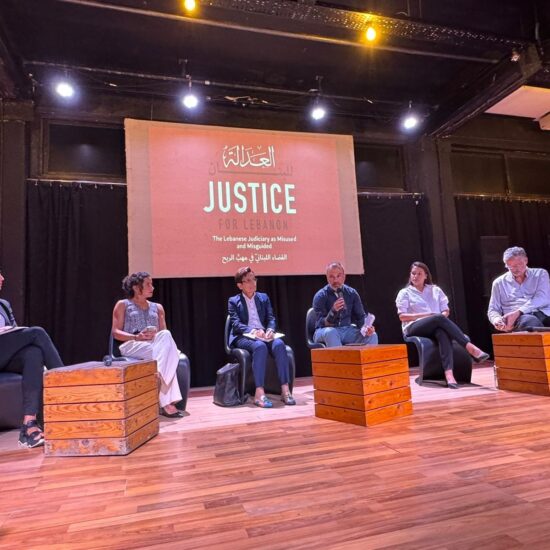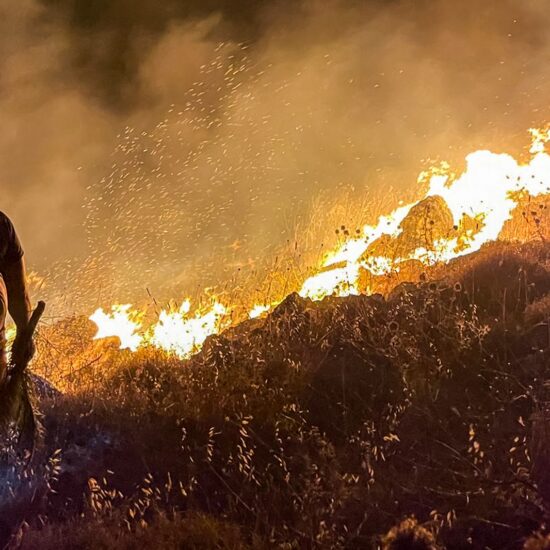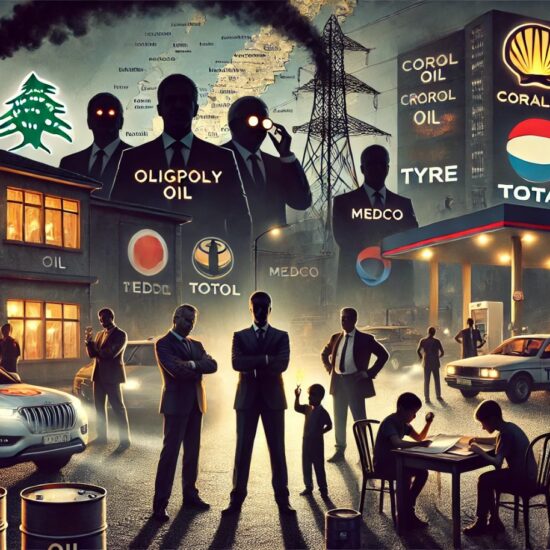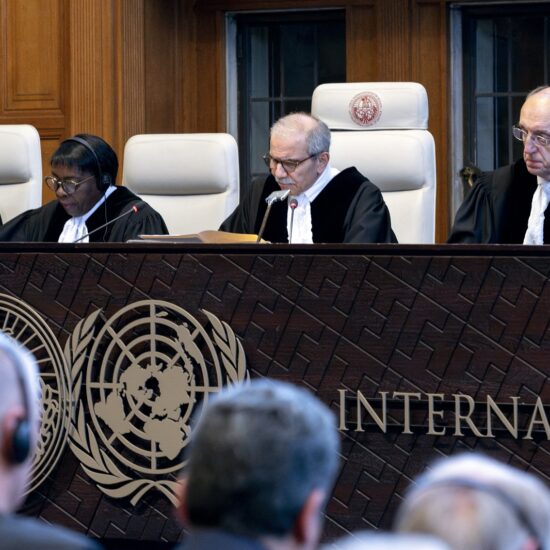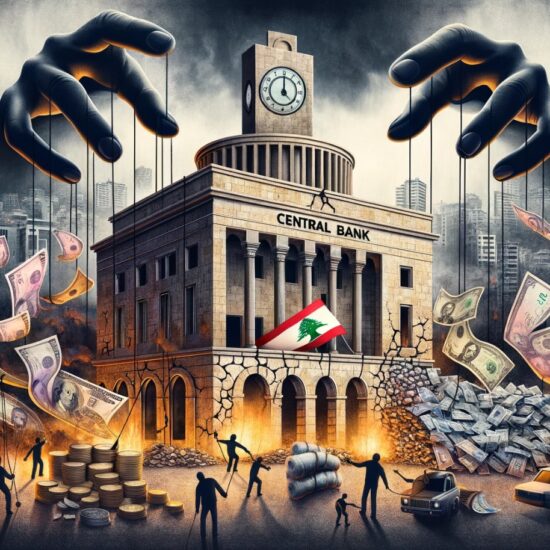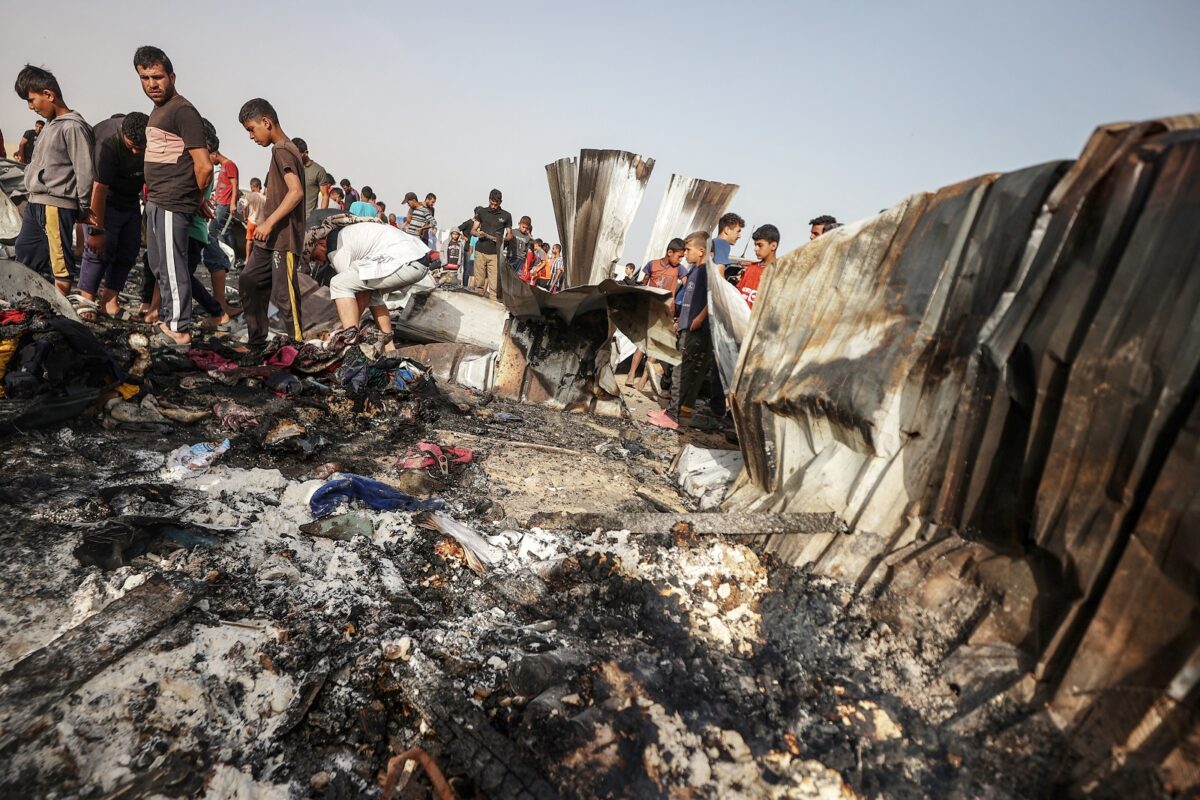
Israeli airstrikes kill at least 40 in Rafah as displaced people hit, Cracking down on Syrian refugees in Lebanon, May 25 marking anniversary of Resistance and Liberation Day amidst ongoing war, Children in school bus injured by Israeli attack in Nabatieh, Lebanese authorities doubling their efforts to combat drug trafficking, Sexual abuse allegations at Lycée Emmanuel: principal and others released, investigation ongoing, Tripoli receives 2024 ‘Culture Capital’ title, IMF sees Lebanon’s reforms insufficient for recovery, Hamas launched rocket attack towards Tel Aviv area, World Court orders Israel to halt assault on Gaza’s Rafah, Norway, Ireland, Spain to recognise Palestinian state, Death of Iran’s President delayed talks with UN nuclear watchdog, Israel continues to bomb Gaza despite ICJ ruling, Islamic State claims attack on vehicle in Iraq which killed soldier, Israel allows return to three evacuated West Bank settlements, In Paris the historic trial of senior officers of the Syrian regime, Raids, arrests and repatriations on the rise in Tunisia, ICC request to arrest Israel and Hamas leaders over alleged war crimes to be examined in the coming weeks
The courts, the laws, the judges, the arrest warrants, on the one hand. On the other: carelessness towards each of those. The awareness of one’s impunity. Or perhaps just the arrogant irresponsibility, hybris, of underestimating the future. Ignoring the past, limiting the present to the here and now. But the waltz of justice has slow tempos. It never stops taking note and keeping track of violations and abuses.
Syria torn apart by thirteen years of civil war proves it: the regime that on Tuesday last week, in the French capital, in the form of three high-ranking government officials – rather in that of their names: Ali Mamlouk, Jamil Hassan and Abdel Salam Mahmoud, as the three were judged in absentia – was brought to the prosecution stand. The indictment: complicity in war crimes and crimes against humanity.
It is not the first time that Syrian officials have been brought to a European court – but never before has it happened with personalities of such caliber. Judged for the forced disappearance of Mazen and Patrick Dabbagh, father and son with dual French-Syrian nationality, imprisoned by the Assad regime in 2013, and returned – also in absentia – in the absence of their bodies – in the form of a death certificate, five years later. Neither had taken part in the anti-government protests. If the Paris trial ends with a conviction, it will be a new international judicial recognition of the crimes against humanity committed by the Syrian regime.
Yet it is not a struggle between the victim and the oppressor, not even one between justice and injustice. The bodies of Mazen and Patrick will not return: injustice, from the point of view of the survivors, the victims, the exiles, reigns supreme. Instead, if we look more closely, it is a clash between accountability and impunity. Impunity is the true enemy of justice; it is the system of impunity that the laws, the courts, the judges, the arrest warrants, try to undermine.
The first trial worldwide on state torture in Syria started in Germany in April 2020. The defendants: Anwar Raslan and Eyad al-Gharib, two former officials of President Bashar al-Assad’s security apparatus. In February 2020, the Koblenz Higher Regional Court sentenced al-Gharib to four and half years in prison, and in January 2022, the conviction of Raslan followed. In January 2022, thanks to the testimonies of 29 Syrian torture survivors in the so-called al-Khatib proceedings – from the name of the prison’s branch in the Muhajreen neighborhood of central Damascus where systematic and generalized torture ruled -, the Koblenz Court for the first time convicted a senior Assad government official for crimes against humanity in Syria, Anwar Raslan, to a life-long sentence. The court found him guilty of being the co-perpetrator of torture, 27 murders and cases of sexual violence and other crimes in the al-Khatib branch.
One, historic step, little but solid, with no hesitation, that gives some hope for justice: “even if everything takes a long time and nothing happens tomorrow, or even the day after tomorrow” said a survivor who was tortured in the detention facility, and witnessed during the Koblenz trial.
It is from this perspective that the latest decisions of the International Court of Justice and the International Criminal Court must be observed. Steps of a slow but decisive waltz that shakes the image of Israel in the world. The ‘only democracy in the Middle East,’ genocidal democracy. The fact that it is ignoring the judiciary decision, persisting in bombarding Rafah the day after the World Court ordered it to suspend operations there – another proof to present against its impunity, when the flames of Rafah’s refugee camps will have gone out, and times will be mature. However, the question – still open – remains: how many more deaths will be needed to halt this heinous, unacceptable assault on defenseless civilians.
In Lebanon
Assault on childhood: An Israeli drone strike launched on Nabatieh on Thursday, May 23, narrowly missed a group of children in a school bus, injuring some of them. “Three of the children on board were bleeding, while the others were screaming,” the driver told reporters. The children were in the vicinity of an Israeli drone strike that killed a physics teacher, identified by the Israeli army as a member of Hezbollah’s weapons manufacturing team – though no one of his colleagues could confirm the allegation.
The party responded to the attack in Nabatieh by firing dozens of rockets at an Israeli military post, which came amid a volley of other strikes claimed by the party. Israel continued to unload an arsenal of aerial bombing, drone strikes, artillery shells, and incendiary balloons across southern Lebanon.
Commenting on the event, the Elementary School Teachers Union talked of an “education “catastrophe” and “assault on childhood.” Earlier this month, the United Nations Children’s Fund (UNICEF) warned of the consequences of cross-border fighting on access to healthcare, noting a surge in vaccine-preventable diseases and malnutrition, and significant effects on the education of roughly 20,000 students. UNICEF estimates that a third of the more than 92,000 people displaced from southern Lebanon are children and that fighting forced 70 schools to shut down.
Since October, Israeli strikes have repeatedly killed and injured children either around or in their direct line of fire. Earlier this month, a civilian family, including a 12-year-old child, was killed in their home by an Israeli attack targeting their building. In February, 10 civilians – children included – were killed in their homes in similar attacks.
Celebrating Resistance and Liberation Day: Amidst this turmoil, on the occasion of Resistance and Liberation Day, on May 25, Speaker of the House, Nabih Berri, addressed the Lebanese people, emphasizing the significance of reclaiming sovereignty and liberating the nation’s land, state-run National News Agency (NNA) reported.
Berri highlighted May 25, 2000 – when the Israeli army withdrew from territory in Southern Lebanon, marking the end of the fifteen-year-long south Lebanon conflict – as a pivotal moment in Lebanon’s history, commending all the Lebanese, particularly those in the north, Beqaa, Mount Lebanon, and the south, for their steadfastness and resilience against external threats.
Berri then underscored Lebanon’s commitment to international resolutions, especially UN Resolution 1701, while affirming the country’s right to defend its territory against Israeli aggression. He reiterated Lebanon’s openness to positive cooperation efforts aimed at curbing Israeli hostility and preserving its sovereignty. In conclusion, the Speaker of Parliament emphasized the importance of national unity and dialogue in addressing internal challenges, urging political parties and parliamentary blocs to prioritize Lebanon’s interests above all else.
Cracking down: On Saturday, May 25, Free Patriotic Movement MP Gebran Bassil announced on X that the party has submitted a written request to Speaker of Parliament Nabih Berri, calling for a session to legislate by necessity, dedicated to enacting laws on displacement and the illegal Syrian presence in Lebanon.
“The Strong Lebanon Bloc has submitted six laws in this regard. If said laws are passed, they will be addressing all offences committed by displaced Syrians, accelerating their return to Syria, and empowering municipalities to contribute effectively to their return,” MP Bassil wrote.
Since April – when anti-Syrian sentiment spiked following the killing of Pascal Sleiman, member of Christian right-wing Lebanese Forces – Lebanon’s government has instructed municipalities to tighten control over their Syrian residents. Lebanon’s Interior Ministry announced on April 30 that it ordered municipalities to survey and register Syrians. It also instructed them not to rent property to those who are not registered or do not have legal residency.
Since then, multiple municipalities have not only obliged but issued their own sets of restrictions on Syrians, banning gatherings, imposing curfews, closing Syrian-run businesses and evicting Syrian residents, while thousands more face losing their homes. So far in 2024, moreover, Lebanon has deported 433 Syrian refugees and arbitrarily arrested 685 refugees, according to figures of NGO Access Center for Human Rights (ACHR). The rights organization noted that these were only the documented cases, as it estimates more than 1,000 Syrians have been deported so far this year.
Lebanon has also resumed a campaign promoting the ‘voluntary return’ of Syrian refugees. Earlier in May, more than 300 refugees crossed the border back into Syria in the first ‘voluntary return’ convoy organized since 2022.
Insufficient: Lebanon’s economic reforms are insufficient to help lift the country out of its economic crisis, the International Monetary Fund (IMF) delegation said on Thursday, at the conclusion of its visit in the country. Ernesto Ramirez Rigo, the head of the IMF mission visiting Lebanon, said in a statement that Lebanon’s ongoing refugee crisis, fighting with Israel at its southern border and the spillover from the war in Gaza are exacerbating an already dire economic situation.
Some progress, but not “what is needed to enable a recovery from the crisis,” chief delegate Rigo said – despite noting positive effects, such as slowed inflation and increased Banque du Liban (BDL) foreign currency reserves, resulting from central bank and finance ministry policies that helped stabilize the lira-to-dollar exchange rate. For example, IMF and BDL agree on not disbursing loans to the government without reforms.
Much more, however, needs to be done if Lebanon is to alleviate its financial crisis, Rigo stated, saying that “these policy measures fall short of what is needed to enable a recovery from the crisis. Bank deposits remain frozen, and the banking sector is unable to provide credit to the economy, as the government and parliament have been unable to find a solution to the banking crisis.” Addressing the banks’ losses while protecting depositors to the maximum extent possible and limiting recourse to scarce public resources in a credible and financially viable manner is indispensable to lay the foundation for economic recovery.
Beirut’s drug trafficking: Lebanon’s Internal Security Forces on Saturday arrested an alleged drug dealer, along with two female accomplices, and seized 35 envelopes of cocaine as well as other drugs that were in their possession. The arrests were made following a high-stakes car chase through the capital.
In a statement, the ISF said that the suspected drug dealer, identified as I. N. (born in 1986, Lebanese), was under surveillance by the Beirut Investigation Unit of the ISF. After locating him, the unit “ambushed him” on May 21, in the Bechera al-Khoury area of Beirut, the statement added. The search resulted in the seizure of 35 envelopes, each containing approximately 0.5 grams of cocaine, along with two additional envelopes, one containing hashish and the other narcotic pills. The investigation is ongoing, the police added.
This comes after, during the previous week, the Lebanese Army raided the area of Hangar, surrounding the Shatila Palestinian refugee camp, arresting 37 alleged drug traffickers and killing one. Footage captured by motorists in the area showed a substantial deployment of tanks and army vehicles, with an army bulldozer seen demolishing a concrete wall in a narrow alley. The operation led to the seizure of large quantities of cocaine, cannabis, and salvia pills, a hallucinogenic plant, as well as arms and ammunition.
A military source told L’Orient-Le Jour that among those arrested were a “major drug trafficker in the camp as well as several individuals involved in various types of drug trafficking.” The nationalities of those arrested were not disclosed.
Drug traffickers and dealers will often seek cover in Palestinian refugee camps, as the Lebanese Army rarely operates within these areas: instead, security is typically maintained by local Palestinian factions.
Sexually harassed at school: In recent days, reports have surfaced about harassment allegations and sexual abuse of students involving individuals at Lycée Emmanuel, a high school in Kfar Shima, in the Baabda district. Among the inquired is the school’s principal and four staff members, according to reports from the LBCI news channel.
The case emerged when a student’s father discovered a sexually explicit voicemail sent to his daughter by one of her teachers. The voicemail was anonymously forwarded to outgoing Minister of Education Abbas Halabi and Mount Lebanon’s Chief Prosecutor Ghada Aoun, who instructed Judge Nazek Khatib to initiate an investigation, per LBCI’s report.
The initial investigation revealed that the abuse had been occurring at the school for three years and that the principal was fully aware of it. Arrest warrants were issued for the principal, a gym teacher, and a custodian – the latter having previously been arrested for a similar case but released. A fourth arrest warrant was issued for a math’s teacher at the school who remains at large, according to information circulating online.
The school, however, claimed on social media that the principal is not one of the suspects but is “only being questioned by the judiciary in his capacity as principal.” According to the school’s Facebook page, one of the accused teachers was fired two months ago, while the custodian was dismissed last October. There was no mention of the fourth suspect still wanted by authorities.
The school’s administration was unavailable for comment, and an Internal Security Forces source provided no additional information.
LBCI sources confirmed that the school’s principal was released after being questioned, as it was determined that he was not involved in the harassment incident. Additionally, a third teacher who was summoned for questioning on Friday was also released after it was proven that he was not involved in the offence, and the school guard was released as well. Currently, two teachers remain detained and under investigation.
Kfar Shima’s mayor, Wassim Rajji, expressed concern, noting that residents are worried, especially those with children enrolled at Lycée Emmanuel. “There are twelve schools in Kfar Shima,” he said. “Families are beginning to wonder about this kind of behaviour in schools in general.”
The episode comes after, early in May, the Lebanese judiciary arrested several suspects involved in a pedophile network of nearly 30 people, including a lawyer and a TikTok influencer accused of sexually abusing some 30 children, sometimes using the video-sharing platform to lure their victims.
Changing image: During a celebration marking the announcement of ‘Tripoli the Capital of Arab Culture,’ Caretaker Prime Minister, Najib Mikati, delivered a speech emphasizing the city’s rich and vibrant history. “Today, we celebrate a living, pulsating history that Tripoli has carried and protected through generations,” Mikati said, as the NNA reported, highlighting Tripoli’s unique blend of heritage, encompassing mosques, churches, the sea, the citadel, markets, and the harmonious coexistence of its people.
Reflecting on Tripoli’s journey into modernity in the mid-20th century, Mikati praised the city’s cultural evolution and openness to external influences while maintaining its identity. He also celebrated the inclusion of the Rashid Karami International Fair in the UNESCO World Heritage list, acknowledging the responsibility to preserve this architectural marvel, and commended the efforts of Minister of Culture, Mohammad Wissam Mortada, for his dedication to ensuring the success of the cultural events in Tripoli.
“This is our chance to uncover Tripoli’s treasures in terms of people and landmarks. I’m stunned by the human and natural potential here. You’ll witness what makes Tripoli unique, and we’re doing it all with no funding,” said the Minister. Despite no budget, workers are determined to succeed. Young volunteers are eager to overcome obstacles and make the event a hit. Some see the coming months as Tripoli’s big chance to shine, while others feel funding issues should have delayed the festivities. “Tripoli has suffered, but now, with activities starting, people will see what they’ve missed out on for years,” Mortada affirmed.
Addressing Lebanon’s current political paralysis, Prime Minister Mikati called for renewed efforts to break the cycle of repeated crises, urging political leaders to learn from past mistakes and focus on electing a new president and revitalizing state institutions. Mikati went on to stress the importance of overcoming obstacles to support the government’s efforts in maintaining state functions amid challenging circumstances.
In The Region
Halt the assault: The International Court of Justice (ICJ) ordered Israel on Friday to immediately halt its military assault on the southern Gaza city of Rafah, in a landmark emergency ruling in South Africa’s case accusing Israel of genocide. The previous week, South Africa had asked the ICJ, also known as the World Court, to order a halt to Israel’s offensive in the besieged Strip, and in Rafah in particular, to ensure the survival of the Palestinians trapped there. South Africa asked for additional emergency measures to protect Gaza’s southernmost city, where more than a million Palestinians have been sheltering. It also asked the panel of 15 permanent judges to order Israel to allow unimpeded access to Gaza for UN officials, organizations providing humanitarian aid, journalists and investigators.
Reading out the ruling, World Court president Nawaf Salam said the situation in the Palestinian enclave had deteriorated since the court last ordered Israel to take steps to improve it, and conditions had been met for a new emergency order. “The state of Israel shall immediately halt its military offensive, and any other action in the Rafah governorate, which may inflict on the Palestinian group in Gaza conditions of life that could bring about its physical destruction in whole or in part,” he said.
The UN special rapporteur on the occupied Palestinian territories called on Saturday for sanctions against Israel for defying the court. Though, Israel gave no indication it was preparing to change course, with Prime Minister Benjamin Netanyahu criticizing the ICJ ruling, calling the charges of genocide brought by South Africa as “false, outrageous and morally repugnant.”
Heinous massacre: Despite this, Israel has continued its relentless attacks on Rafah, and multiple deaths were reported from central and northern Gaza, which have been subjected to renewed attacks. The Shaboura camp and areas close to the Kuwaiti Hospital in Rafah on Saturday, May 25, were targeted, and several people who have been injured in the bombardment have been transferred to the hospital, local correspondents reported.
On Sunday, then, Israeli airstrikes killed at least 40 people and hit tents for displaced people, while numerous others were trapped in flaming debris. According to Gaza’s Health Ministry, women and children made up most of the dead and dozens of wounded. The following day, the Palestinian presidency accused Israel of deliberately targeting civilians, joining a chorus of worldwide condemnation following the attack, and stating that “the perpetration of this heinous massacre by the Israeli occupation forces is a challenge to all international legitimacy resolutions.”
Israel’s top military prosecutor described the attack as “very grave” and said an investigation will be conducted. “The details of the incident are still under an investigation, which we are committed to conducting to the fullest extent,” Major-General Yifat Tomer Yerushalmi told a news conference, adding that the Israeli army “regrets any harm to non-combatants during the war”.
The Wafa news agency, citing the Palestine Red Crescent Society (PRCS), said the dead included women and children, with many burned alive inside their tents, and people’s bodies melting with the tents, as local witnesses reported.
Seeking arrest warrants: This happened after on Monday, May 20, the prosecutor at the International Criminal Court (ICC), a separate court also based in The Hague, Karim Ahmad Khan, said he had requested arrest warrants against Israeli Prime Minister Benjamin Netanyahu, his defense chief and three Hamas leaders over alleged war crimes. The ICC prosecutes individuals for alleged war crimes, crimes against humanity and genocide, while the ICJ is the highest UN body for disputes between states.
As an article published by the Guardian explains, the request will be examined in the coming weeks or months by the three judges of the court’s preliminary chamber, who currently come from Romania, Benin and Mexico. Approval is not a given, but several experts have stressed that the evidence gathered is solid and there are “well-founded reasons” to believe that the people involved committed a crime that falls within the jurisdiction of the court.
If the arrest warrants are actually issued, it will be one of the most significant moments in the history of the ICC since its foundation in 2002, because for the first time Western allies and in particular the United States will be indicted. The court has often been criticized by the Global South for focusing too much on African countries that lack global prestige. “Khan’s request,” continues the Guardian, “is a direct challenge to Washington, which had exerted strong pressure on him to push him not to proceed.”
Tel Aviv under attack: On Sunday, May 26, Hamas launched a rocket attack towards the Tel Aviv area in central Israel for the first time in nearly four months. At least eight rockets were launched from the Rafah area in southern Gaza, the Israeli military said, adding that several were intercepted. Sirens also sounded in other Israeli cities and towns, like Herzliya and Petah Tikva.
Israeli media published footage of missile fragments in the garden of a building in Herzliya. Other footage appeared to show shrapnel damage to a bedroom in a house. A different video showed a large crater apparently created by a rocket in an open area near the central town of Kfar Saba. Israel’s ambulance service, Magen David Adom, said many people were being treated for acute anxiety.
The Palestinian militant group, analysts suggest, may be trying to show its strength ahead of fresh negotiations expected to start on Tuesday to try to end the Israeli assault, or it may be trying to derail them.
Recognized: On Wednesday, May 22, the leaders of Norway, Ireland and Spain have said their countries will formally recognize Palestine as a state for the sake of “peace in the Middle East,” prompting Israel to immediately recall its envoys, and urging other Western countries to follow suit. Norway’s Prime Minister Jonas Gahr Store said on Wednesday that a two-state solution was in Israel’s best interest and the recognition of Palestinian statehood would come as of May 28.
“In the midst of a war, with tens of thousands killed and injured in Gaza, we must keep alive the only alternative that offers a political solution for Israelis and Palestinians alike: Two states, living side by side, in peace and security,” Gahr Store said.
Ireland’s Prime Minister Simon Harris made a similar announcement in Dublin, as did Spain’s Prime Minister Pedro Sanchez in Madrid, to applause in parliament. Harris told a news conference that “he’s confident that further countries will join us in taking this important step in the coming weeks.”
Following the announcements made by Oslo, Madrid and Dublin, Colombia confirmed its plans to open an embassy in Ramallah, where Mahmoud Abbas’ Palestinian Authority is based. In early May, the Colombian president, whose country had been a key ally of Israel in Latin America, announced the severing of diplomatic ties between the two countries, describing Prime Minister Benjamin Netanyahu’s government as “genocidal” in its conduct of the war in Gaza.
Israel’s warning: Israel immediately announced it was recalling its envoys to Ireland and Norway for “urgent consultations.” “Today, I am sending a sharp message to Ireland and Norway: Israel will not go over this in silence,” Foreign Minister Israel Katz said in a statement, adding that he planned to do the same with the Spanish ambassador.
The Israeli Foreign Ministry has later posted on X a video message addressed to Ireland warning that “recognizing a Palestinian state risks turning you into a pawn in the hands of Iran and Hamas,” adding the move would “only fuel extremism and instability, and that plans for Palestinian recognition constitute a “prize for terrorism” that would reduce the chances of a negotiated resolution to the war in Gaza.
On the other side, Hussein al-Sheikh, the Secretary General of the executive committee of the Palestinian Liberation Organization (PLO), posted on X that “historical moments in which the free world triumphs for truth and justice after long decades of Palestinian national struggle, suffering, pain, occupation, racism, murder, oppression, abuse and destruction to which the people of Palestine were subjected.” Hamas, then, called the decision by the three countries an “important step.”
Cancelling disengagement: The Israeli military has approved permission for Israelis to return to three former West Bank settlements they had been banned from entering since an evacuation order in 2005, the Defense Ministry said on Wednesday, as reported by Reuters. The same day when Ireland, Norway and Spain had announced their countries’ recognition of a Palestinian state.
The decision was taken despite international pressure on Israel to curb settlement expansion in the West Bank, which Palestinians want as the core of a future independent state alongside Gaza. “The Jewish hold on Judea and Samaria guarantees security, the application of the law to cancel disengagement will lead to the development of settlement and provide security to residents of the area,” Defense Minister Yoav Gallant said in a statement, using the Biblical names for the West Bank that are commonly used in Israel.
The three settlements, Sa-nur, Ganim and Kadim, are located near the Palestinian cities of Jenin and Nablus, both of which are strongholds of armed militant groups in the northern West Bank. Permission from the military, which has overall control of the West Bank, was required for any return to the three settlements.
Last year, an amendment to the so-called ‘disengagement law’ of 2005 was seen as opening the way to re-establishing former West Bank settlements formerly evacuated under a plan overseen by former Prime Minister Ariel Sharon. Under the plan, which was opposed by the settler movement at the time, all 21 Israeli settlements in Gaza were ordered to be evacuated. Most settlements in the West Bank were unaffected apart from the three that will now be accessible again.
More than 500,000 Jewish settlers are now estimated to be illegally living in the West Bank, with a further 200,000 living in East Jerusalem.
Paused: The deaths of Iran’s President and Foreign Minister in a helicopter crash have caused a pause in the UN nuclear watchdog’s talks with the Islamic Republic over improving cooperation with the agency, the watchdog’s chief Rafael Grossi told Reuters on Wednesday. “They are in a mourning period which I need to respect,” International Atomic Energy Agency (IAEA) chief Grossi said in Helsinki, where he spoke at a nuclear conference. “But once this is over, we are going to be engaging again,” he said, describing it as a “temporary interruption that I hope will be over in a matter of days.”
The US and its three top European allies are divided over whether to confront Iran at the UN nuclear watchdog by seeking a resolution against it and thereby risk further escalation, with the Europeans in favor, diplomats say.
The IAEA faces a range of challenges in Iran, from Tehran’s recent barring of many of the most experienced uranium-enrichment experts on its inspection team to the country’s continued failure to explain uranium traces found at undeclared sites despite a years-long IAEA investigation. The Agency has been trying to expand its oversight of Iran’s atomic activities while the country’s uranium-enrichment programme continues to advance. Iran is enriching uranium to up to 60% purity, close to the 90% of weapons-grade, which no other country has done without developing nuclear weapons.
The country currently has about 140 kg of uranium enriched to up to 60%, Grossi said. According to an IAEA definition, that is theoretically enough, if enriched further, for three nuclear bombs. The IAEA’s last quarterly report in February claimed it had 121.5 kg, enough for two bombs.
A historic trial: The trial of three senior Syrian government officials – Ali Mamlouk, Jamil Hassan and Abdel Salam Mahmoud – started in Paris on Tuesday, May 21, for complicity in war crimes and crimes against humanity. The three are judged in absentia for the forced disappearances of Mazen and Patrick Dabbagh, father and son with dual French and Syrian nationality, imprisoned in 2013 by the regime of Bashar al-Assad.
The family didn’t hear from them until 2018, when they received their death certificates. Mazen worked at the French school in Damascus, his son was a student. Neither had participated in the protests against the Assad regime.
L’Orient-Le Jour explains why it is a historic trial: “It is not only the first organized in France against Syrian officials for crimes against humanity and war crimes, but it is also the first on an international scale against people of such high rank within the Syrian administration.” Proceedings against members of the Syrian regime also took place in other European countries, but the defendants had held less important roles. If the Paris trial ends with a conviction, the Lebanese newspaper predicted, “it will be a new judicial recognition of the crimes against humanity committed by the Syrian regime.”
ISIS resurgence in Iraq: One Iraqi soldier was killed and two were wounded after an explosive device detonated on their vehicle in an area between the Diyala and Salahuddin governorates in eastern Iraq on Wednesday, two security sources told Reuters. The Islamic State group claimed responsibility for the attack in a statement on its Telegram channel.
Later on the same day, a roadside bomb killed five civilians from the same family in Iraq’s Salahuddin province after detonating on a vehicle transporting them, two security sources confirmed.
The attacks constitute only the latest example of ISIS activity in Iraq. Iraqi forces, backed by a US-led coalition, defeated ISIS territorially in 2017, but since then the group has carried out lower-scale attacks, particularly in remote areas of the Diyala, Salahuddin, Nineveh and Kirkuk provinces, including in areas that are disputed between the federal and Kurdistan Region governments.
Iraqi operations against ISIS are also ongoing. After in March Iraqi forces announced the death of a prominent ISIS leader, on Tuesday, May 21, seven ‘terrorists’ with undisclosed affiliations were arrested in Nineveh. A day earlier, authorities seized a money exchange that allegedly received funds on behalf of ISIS in Kirkuk, the official Iraqi News Agency reported.
The recent ISIS activity comes as the Iraqi government seeks the withdrawal of US forces from the country. There are around 2,500 US military personnel in Iraq as part of the anti-ISIS coalition. Iraqi Prime Minister Mohammed Shia al-Sudani has repeatedly said the coalition is no longer necessary and that it is time to implement a withdrawal.
Raids, arrests and repatriations in Tunisia: Tunisia is set to sign agreements with several African countries that will allow Tunis to send back irregular migrants. The Foreign Ministry stated that “the number of requests for voluntary repatriation is constantly increasing. Expulsions and operations to counter attempts at irregular migration are growing.” The Ministry also announced a national plan to tackle irregular immigration during a session of Parliament.
Last week, the court in Sousse, a city on the country’s east coast, sentenced fifty irregular migrants from several sub-Saharan African countries to eight months in prison on charges of “illegal border crossing and illegal residence on national territory,” Tunisian news agency TAP reported, citing a court spokesperson.
According to the Tunisian national guard, over 21 thousand sub-Saharan migrants have been prevented from entering the country since the beginning of the year, while reports of serious human rights violations against foreigners, lawyers and journalists covering the migratory issue are multiplying. Between May 3 and 13, security forces arrested two lawyers, two journalists, and at least five officials from three non-governmental organizations working on migration, asylum and fighting racism.
Officials from at least eight NGOs were also investigated as part of an operation to target dissidents and immigration officials, the NGO Human Rights Watch said in a report on May 17.
“The crackdown on migration-related work, at the same time as the growing arrest of opponents and journalists, sends a clear message: those who do not toe the line can end up in the crosshairs of the authorities,” said Lama Fakih, North Africa director of Human Rights Watch. “By targeting these civil society groups, the Tunisian government is jeopardizing the support offered to migrants, refugees and asylum seekers living in vulnerable situations.”
What We’re Reading
Does Lebanon deserve TikTok: With sarcasm and a sprinkle of hard-hitting facts, NOW’s Maan Barazy questioned the ethical implications of TikTok, highlighting how the TikTok saga – a tale of human trafficking, money laundering, and rape – begs a reform of a juvenile law.
Cash for grades: Tackling the topic of the rise of academic fraud in Lebanon, NOW’s Rodayna Raydan explored the methods, reasons, and long-term impacts on Lebanese universities students’ future careers.
Beyond the press vest: NOW’s Valeria Rando reflected on the topic sexual harassment faced by women journalists when interviewing their sources, with the aim of raising awareness on yet another risk of the journalistic profession, reflecting on the extended meaning of safety while reporting, beyond the helmet and the bulletproof press vest.
Lebanon +
In their last episode of Sarde After Dinner, Médéa Azouri and Mouin Jaber tackled the topic of Arab expats’ identity, exploring the common feeling of wanting to return home. Whether it is for a university, work or political exile, there isn’t a single Arab family that doesn’t have one of its members abroad. This Sarde explores what it means to be an expat as the hosts share for the first time their own personal experiences.



